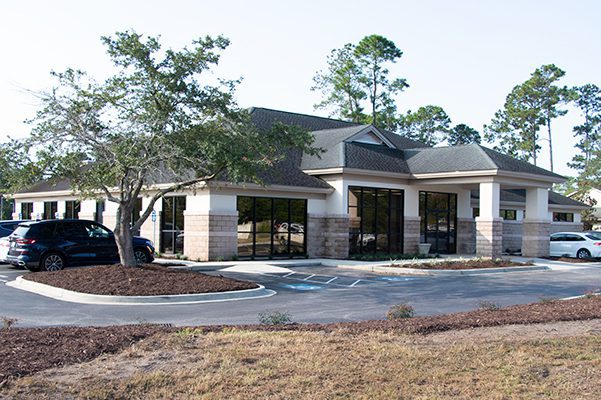What are the Stages of Cancer?
Have you recently been diagnosed with cancer? Are you wondering how the stage of the disease is determined? Cancer is a complex diagnosis and staging is one of the preliminary steps that provides a clearer picture of what to anticipate and how to proceed regarding therapy.
At the CMC Cancer Center, we want to help you better understand the various stages of cancer, shedding light on what each stage means and how our dedicated team can help you or your loved one throughout this journey. Knowledge is power and with better comprehension of the disease’s progression, you’ll feel more empowered to make informed decisions regarding your treatment options.
Stage 0 Cancer – Cancer in Situ
Stage 0, also known as “cancer in situ,” refers to abnormal cells that are confined to their original location and have not yet invaded surrounding tissues. This stage is often considered the earliest form of cancer. At CMC Cancer Center, we emphasize the importance of regular screenings and early detection to catch cancer at this stage when it is highly treatable.
Once found it can be managed through surgery, radiation therapy, or targeted therapies. Regular follow-up visits and screenings are necessary to monitor any potential recurrence or progression.
Stage 1 Cancer – Localized Cancer
Stage 1 cancer indicates that the tumor has started to grow and spread beyond the original site. However, it is still localized and has not invaded nearby lymph nodes or distant organs.
Our team of skilled oncologists at CMC Cancer Center will work with you to develop a personalized treatment plan tailored to your specific diagnosis. Treatment options for stage 1 cancer typically include surgery, radiation therapy, chemotherapy, or a combination of these approaches.
The prognosis for stage 1 cancer is generally favorable, with a high chance of successful treatment and long-term survival. Regular follow-up visits and screenings are essential to monitor the effectiveness of treatment and detect any signs of recurrence.
Stage 2 Cancer – Regional Spread
Stage 2 cancer signifies that the tumor has grown larger and may have started to invade nearby tissues or lymph nodes. However, it has not yet spread to distant organs. Treatment options for stage 2 cancer may include surgery, radiation therapy, chemotherapy, targeted therapies, or a combination of these approaches.
The prognosis for stage 2 cancer varies depending on the type and location of the cancer, as well as individual factors such as age and overall health. Regular follow-up visits and screenings with the CMC Cancer Center are necessary to monitor the effectiveness of treatment and detect any signs of recurrence or metastasis.
Stage 3 Cancer – Extensive Local Spread
Stage 3 cancer indicates that the tumor has grown significantly and may have invaded nearby tissues, lymph nodes, or organs. It has not yet spread to distant sites in the body. Treatment options for stage 3 cancer typically involve a combination of surgery, radiation therapy, chemotherapy, targeted therapies, or immunotherapy.
The prognosis for stage 3 cancer varies depending on a variety of factors, including the type and location of the cancer, the extent of spread, and individual factors such as age and overall health. Regular follow-up visits and screenings are crucial to monitor the effectiveness of treatment and detect any signs of recurrence or metastasis.
Stage 4 Cancer – Metastatic Cancer
Stage 4 cancer, also known as metastatic cancer, is the most advanced stage of the disease. At this stage, the cancer has spread to distant organs or tissues, making it more challenging to cure.
While this stage can be formidable, our team at CMC Cancer Center offers a range of advanced treatments and targeted therapies to improve your quality of life, alleviate symptoms, and manage the disease. Treatment options for stage 4 cancer may include chemotherapy, radiation therapy, immunotherapy, or palliative care.
The prognosis for stage 4 cancer varies significantly depending on factors such as the type of cancer, the organs involved, and individual factors. Regular follow-up visits and screenings with the CMC Cancer Center and other specialists are essential to monitor the disease’s progression and adjust treatment as necessary.
Key Factors that Determine Cancer Stage
Several key factors determine the stage of cancer. These include the size and extent of the tumor, the degree of lymph node involvement, and the presence or absence of distant metastasis. At the CMC Cancer Center, we use various diagnostic tests, such as imaging scans, biopsies, and blood tests, to assess these factors accurately. The cancer stage helps guide treatment decisions and provides important information about the prognosis and expected outcomes. We are here to guide you and help you better understand the specific factors contributing to the stage of your cancer and their implications.
Coping with the emotional impact of cancer staging
Receiving a cancer diagnosis and learning about the stage of the disease can be emotionally overwhelming. It is essential to acknowledge and address the emotional impact of cancer staging. Seeking support from loved ones, joining support groups like the All Cancers Support Group at CMC, or engaging in counseling or therapy sessions can provide valuable emotional support during this challenging time. Additionally, practicing self-care, such as engaging in relaxation techniques, maintaining a healthy lifestyle, and pursuing activities that bring joy and fulfillment, can help you cope with the emotional burden of cancer staging.
Expert Cancer Care with Compassion
Understanding the stages of cancer is essential if you are facing a cancer diagnosis. By having a better grasp of your phase, you can make more informed decisions regarding your treatment options and better navigate the challenges associated with the disease. Whether it is stage 0 or stage 4 cancer, each stage requires a tailored approach to treatment and support.
The CMC Cancer Center is here to help you access the necessary treatments, resources, and support to enhance your well-being and maximize your chances of a successful outcome. Navigating the stages of cancer may be a challenging journey, but with knowledge, support, and specialized care from the CMC Cancer Center, you can confidently face it with strength and resilience.





